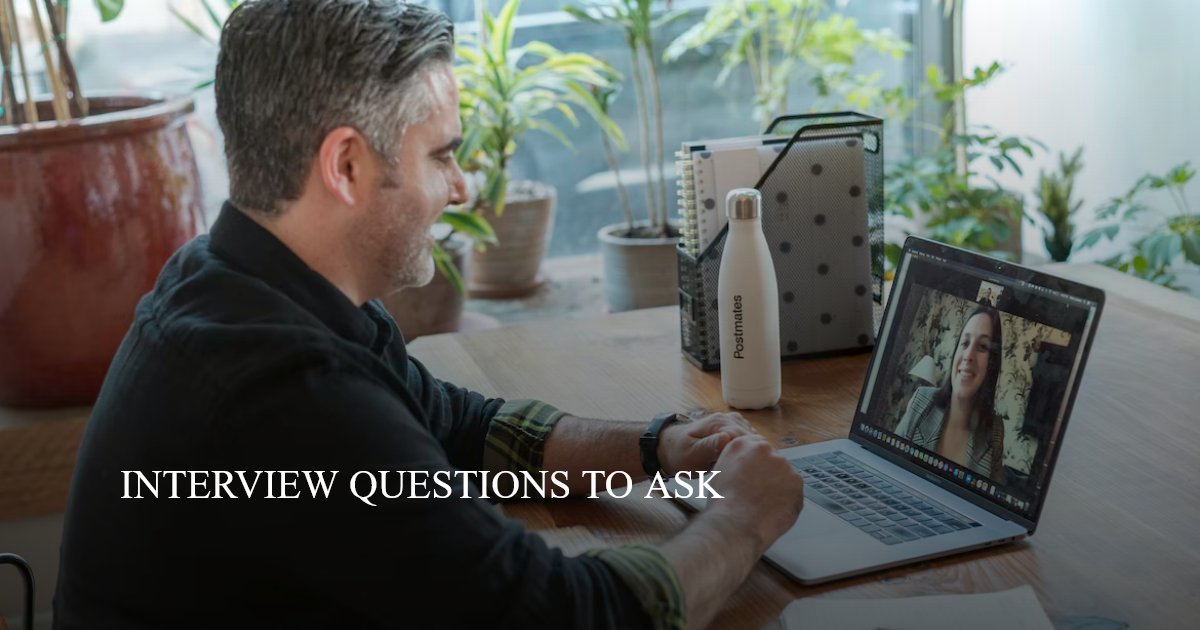Editor’s Note: This post is by Paul Slezak, Cofounder and CEO of RecruitLoop – the World’s largest marketplace of expert Recruiters and Sourcers available on-demand.
The war for quality talent is so fierce right now that if you are lucky enough to have identified a star candidate, you need to ensure that you make the most of the interview and not waste your valuable time.
There’s no denying the value of asking candidates a series of behavioural interview questions or competency based interview questions to be able to more accurately predict how they will perform in your environment. But there are also five essential interview questions that will prove invaluable to any recruiter or hiring manager running their own internal recruitment process.
Whilst these specific questions don’t focus at all on a candidate’s past behaviour or personal attributes, they will tell you (very quickly) just how serious the person sitting in front of you is about their job search and ultimately about working for your organisation.
1. Why are you really sitting in front of me today?
The answer to this question will reveal whether your candidate is running away from something (eg a hostile working environment, bad manager, job they have grown to dislike etc), or whether they are running toward something (eg a better job, a new career direction, or a new challenge through a more senior position etc).
Candidates that I like to refer to as “run aways” are more likely to simply take the first new opportunity presented to them even if it’s not the right one just to get out of where they are today. Believe me you don’t want to be their “rebound employer” because the likelihood of them sticking around with you for very long is close to zero.
“Run toward” candidates will be more strategic in their job search, will have more questions for you as their next potential employer and will be less likely to have just applied for every job they possibly can.
2. What are you ideally looking for in your next position?
This is where you basically ask your candidate to create a wish list for their next role. Get them to talk through it right there in front of you (and remember to write it all down). Ask them to think about everything from:
- What type of manager they want to work for;
- What hours they want to work;
- Whether they want any more flexible working arrangements (eg work from home one day per week);
- Whether they expect any particular benefits (car allowance, parking, mobile phone re-imbursement); or
- What additional training they may be expecting etc.
Once you have a full understanding of what they’re looking for, you will know whether you are able to meet their wishes.
You will also be able to come back to this list at the time you make them an offer and remind them of exactly what they told you they wanted. No last minute or unexpected demands.
3. What salary are you on now?
It’s an unfortunate fact but the majority of people will typically ‘stretch the truth’ slightly in response to this particular question. Even if it’s just by a few thousand dollars, candidates will always inflate their current salary. Fortunately there is a way to prevent this.
Ask for proof.
If a bank is allowed to ask to see a pay slip to approve a credit card for $2,000, why can’t you ask to see a pay slip when discussing a salary of $70,000?
Another way to phrase the question might be, “If I were to ask for a payslip, what salary will it indicate you are currently on?”.
Whilst it might cause the candidate to become fidgety for a minute, or to break eye contact for a second, you are more likely to get a straight answer.
4. Who else is involved in your decision making process?
No matter how independent or confident a candidate may appear to be to you, nobody ever makes a decision about a job change on their own. So it’s your job to find out who else is involved.
Believe me (and this is coming from personal experience) you don’t want to get to offer stage and then have a candidate say, “actually my wife isn’t happy with the long hours we’ve talked about”, “my husband doesn’t want me doing so much travel”, or even “my parents aren’t comfortable with me taking this job”. I have heard all these (and many more) excuses before.
I’m obviously not suggesting you invite husbands, wives and partners into the interview with your candidate, nor am I saying you run the interview over a Sunday dinner with the parents, but by stating up front that you are aware there will be other decision makers involved, it will get them talking up front – and not when it’s too late.
5. How will your manager react when you resign?
Again this might seem like bit of an odd question to ask in your first interview with a candidate, but it will tell you a lot.
If your candidate tells you that the manager would completely understand and respect their decision or perhaps even that they wouldn’t be at all surprised, then you’re OK.
But if the candidate responds by saying their manager will probably offer them more money, there is only one thing for you to do. Send them back to work, suggest they call a meeting with their current employer and to actually ask for a pay rise. If the request isn’t granted, tell them to then come back to you. After all, why should you waste your time going through the entire recruitment process with a great candidate who, when they resign, is offered more money and then turns your offer down? They’ll be happy but you’ll be back to square one.





